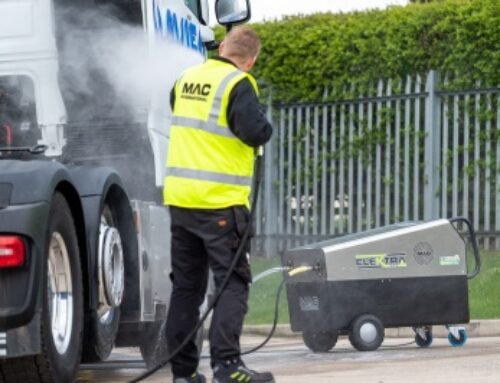Shell: how lubricants can lower cost per km
 Transport operators are missing an opportunity to significantly reduce the cost per kilometre of their fleet, due to a lack of understanding around vehicle lubrication – according to a new study commissioned by Shell Lubricants.
Transport operators are missing an opportunity to significantly reduce the cost per kilometre of their fleet, due to a lack of understanding around vehicle lubrication – according to a new study commissioned by Shell Lubricants.
The findings of the international industry survey, conducted by research firm Edelman Intelligence, demonstrate that many companies do not realise how their lubrication procedures can influence critical operational factors, Shell Lubricants claims.
The company adds that the transportation industry in the UK alone could be missing out on potential savings in excess of £9 million, based on reported savings delivered to Shell Lubricants customers from 2011-2015.
“In today’s industry, transport operators are under pressure to achieve high standards of reliability, safety and emissions compliance, whilst at the same time minimising total operating costs to stay competitive,” said Shell Lubricants.
“Many successful transport operators already consider total cost of ownership (TCO) to guide decisions on equipment maintenance and operational performance.
“This often involves monitoring ‘cost per kilometre’ of the vehicle fleet, on which vehicle availability, maintenance costs and fuel expenditure all have an impact.”
However, the potential impact of lubricants is often underestimated, Shell Lubricants argues.
“Optimising lubrication can have a significant impact on component life, maintenance costs, and unplanned downtime, so it can contribute to cost savings far higher than the price of the lubricant itself,” said the company.
According to its study, only 52 per cent of fleet managers consider lubricant product performance an important purchase consideration. Yet over half admitted their errors in lubrication had led to vehicle breakdowns.
One in three of those surveyed estimated that this unplanned downtime has cost their business over £82,000 or more in the last three years, and one in five believed the sum could have exceeded £200,000.
“From heavy duty diesel engines to transmissions, axles and wheel bearings, every component of a truck or bus made by different original equipment manufacturers (OEMs) has its specific lubrication requirements,” said Shell Lubricants.
“OEMs define the minimum requirements for lubricants or greases, but not all products that meet these standards deliver the same level of performance.
“To ensure that a lubricant or grease delivers consistent performance in the field while meeting OEM requirements, Shell Lubricants conducts controlled laboratory and engine tests, plus countless hours of field testing on all products during the development process.”
Choosing the correct lubricant or grease often comes down to a combination of the equipment’s design characteristics, how it is fuelled, operational parameters and the surrounding environment, adds Shell Lubricants.
John Walters, global sector manager for fleet at Shell Lubricants, commented: “The life force of any fleet business is its vehicles, so unplanned downtime can have a hugely damaging impact on a company’s efficiency and profitability.
“The right lubricants and greases play a vital role in helping protect critical components against wear, deposits and corrosion, giving fleet managers the peace of mind that their equipment is protected in all conditions, even when operating at maximum load.”
Also important is effective lubrication management, says Shell Lubricants, which can help deliver value from improved productivity and reductions in lubricant consumption, maintenance and operating costs.
External support can play a valuable role in coaching staff to ensure that lubricants and greases are properly applied and managed, says Shell Lubricants – but it adds that its survey uncovered a number of barriers suggesting business were not well equipped to take action.
“Only 33 per cent of fleet companies have all the recommended procedures in place to manage lubricants effectively, and 67 per cent think they do not conduct staff training on lubricants as regularly as they should,” said the firm.
“To help its customers select the right products and provide them with the best technical support it can, Shell Lubricants is supported by a strong network of technology centres in Houston, Hamburg and Shanghai with over 200 R&D scientists, as well as 80 macro-distributors and 1,200 distributors around the world.”
Over the last five years, Shell Lubricants says it has delivered £16 million in documented savings to fleet customers worldwide, by helping them upgrade their equipment lubrication practices.











